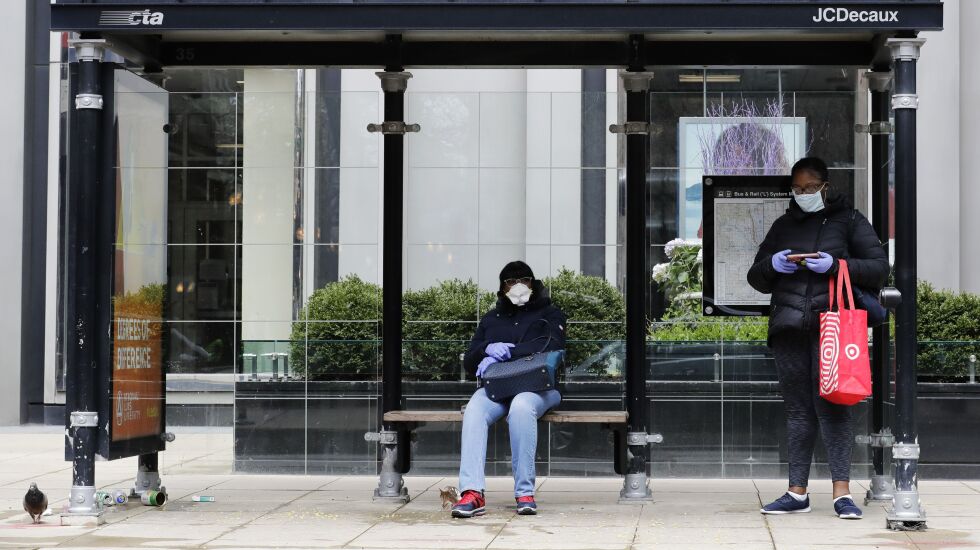
This Thursday, May 11, marks the end of the COVID-19 public emergency. For some, it ended as much as a year ago, when the federal transportation mask mandate abruptly ended on April 18, 2022 with a federal judge’s ruling. For others, the pandemic was never taken seriously, so ending the emergency is a nonissue.
Yet the SARS-CoV2 virus that causes COVID-19 still circulates, and will continue to do so for the foreseeable future. New variants continue to emerge as people get infected. The good news is that hospital systems are no longer strained by people who get infected, as over 98% of counties have low community transmission levels, while slightly less than 1% are at a medium level and less than 0.5% are at a high transmission level.
What May 11 signifies is that COVID-19 no longer officially poses a public health risk for the majority of the population. What it also highlights is that public health must be taken more seriously than the nation has previously.
So what can be done?
First, make sure the Center for Disease Control and Prevention is not subject to political influence.
There have been 19 directors of the CDC or its predecessors. They have historically been appointed by the president (or by extension, the Health and Human Services Secretary). Now, any director appointed after Jan. 20, 2025 will require Senate approval.
What strained the nation during the pandemic was how the various countermeasures put forward by the CDC were politicized. The White House even interfered with what the CDC could do and what its director could communicate. Whether it was mandatory face coverings, vaccine mandates, or even social distancing recommendations, the polarized responses based on party affiliation created public health schisms that led to more infections and in many cases, more deaths.
The United States topped one million deaths attributed to Covid-19. Whether these were deaths due solely to COVID-19 or deaths with COVID-19 as a contributing factor, what is certain that a large group of people died prematurely when infected.
With Rochelle Walensky stepping down as the head of the CDC in June, letting a bipartisan committee identify her replacement would be a step in the right direction. Anytime public health is politicized, the results are certain to be less than optimal, creating chaos when the need for calm is paramount.
Tracking public health, providing funding
Second, a valuable activity for public health agencies like the CDC is surveillance. Whether it is emerging infectious diseases, or data associated with trends on obesity, smoking (both from cigarettes and vaping) and pediatric immunization, having a reliable and objective agency tracking such information is critical for the nation’s public health wellbeing.
One challenge is that the majority of what the CDC does and the information it reports is often not positive. Providing what seems like an endless stream of bad news does not make the CDC popular in the eyes of the population.
Another issue that creates perception issues is that the CDC is highly data-centric. Data provides insights that can be beneficial to guide public health policy. But it can be a challenge for the CDC to communicate its message to a population that struggles with data and the related nuances. Many people are overwhelmed when presented with data that can provide meaningful explanations and insights for improving people’s lives.
For example, wastewater monitoring turned out to be an effective mechanism to track COVID-19 spread in communities. This is a grassroots effort for public health that the CDC is well-positioned to carry out, but many ignored such information, often to their own detriment and certainly to the detriment of their communities.
Third, for public health to be effective, the CDC and state public health agencies, must have sufficient resources. Trying to protect the population on a shoestring budget is a formula for disaster. When the inevitable crisis occurs, the funding given out is often far more than would have been need over time to help prevent a crisis.
Some will celebrate on May 11, but the celebration should be for the lessons that COVID-19 taught us about the importance of public health and the need for a stronger public health infrastructure. As the adage goes, “an ounce of prevention is worth a pound of cure.” This is the time to provide public health its ounce of support, and avert the potential pounds of cure.
Sheldon H. Jacobson, Ph.D., is a founder professor of computer science and a professor at the Carle Illinois College of Medicine at the University of Illinois Urbana-Champaign.
Janet A. Jokela, MD, MPH, is the Senior Associate Dean of Engagement in the Carle Illinois College of Medicine at the University of Illinois Urbana-Champaign.
The Sun-Times welcomes letters to the editor and op-eds. See our guidelines.
The views and opinions expressed by contributors are their own and do not necessarily reflect those of the Chicago Sun-Times or any of its affiliates.







